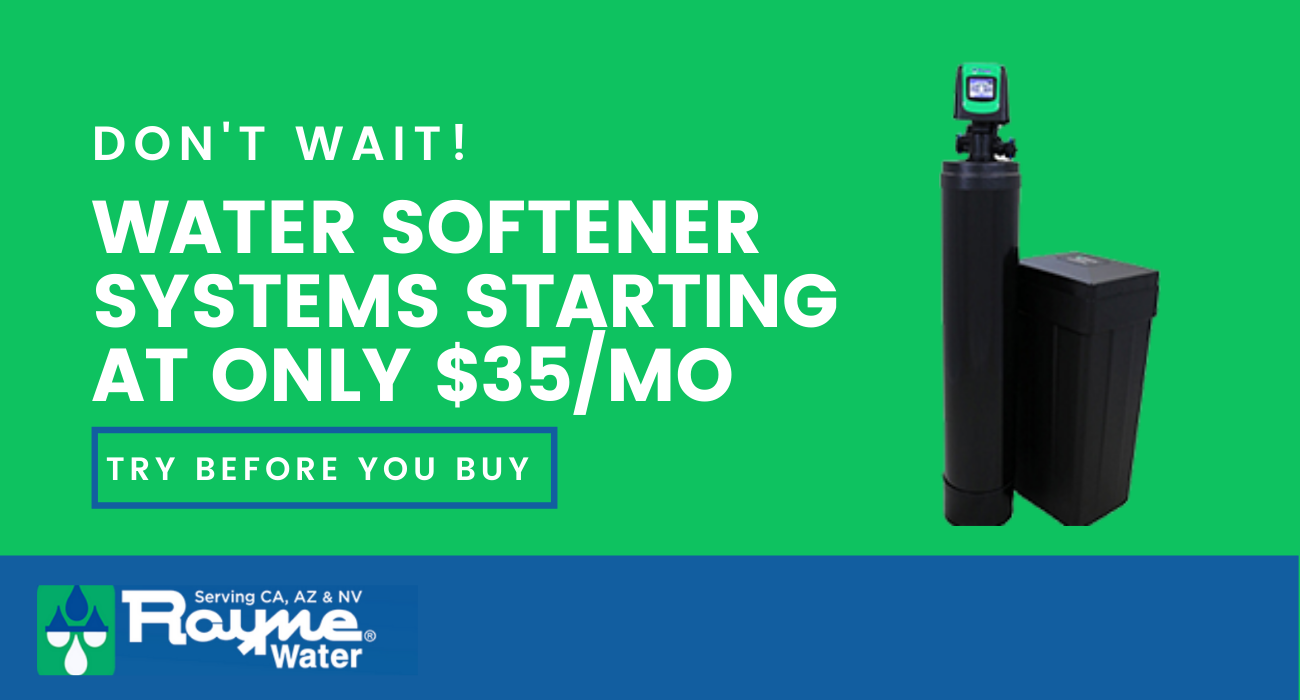Author: Ken Christopher | 8 min read | Mar 05, 2021
Water is key to all life; more than 70% of Earth and our own bodies are made of water. We use water every day for drinking, cleaning, cooking, and bathing. Unfortunately, many home filtration systems use hard water , which comes with a host of problems. To fix this, you need to treat your water supply using a salt-based or salt free water softener. If you’re concerned about your drinking water, consider investing in a drinking water system that will keep poor water quality at bay.
To understand how salt free systems work, let’s first explain what hard water is and why people choose to soften it in the first place.
Because water is a liquid, hearing it described as “hard” might sound counterintuitive. The term actually describes the quality, not the state , of water.
Hard water refers to the number of minerals naturally occurring in water.
Rain contains little mineral content, but when it hits the ground, it absorbs various minerals from the local area—which you then use in your home. Different cities have different scales of hard water, “scale” meaning the number of grains-per-gallon (GPG) of hardness minerals in the water.
Compounds like calcium, magnesium, and silica are responsible for the “hardness” in water. These minerals may seem innocuous, but hard water is responsible for many problems, including:
The two popular methods of treating the hard water are:
The question is, which one is right for your household?

Water softeners and water conditioners both reduce the GPG of minerals found in hard water, but they operate in different ways. Water softeners use salt to remove hard minerals, while water conditioners employ a physical process to minimize the damage from those particles.
Using salt—another mineral—to soften already-hard water sounds backward. Wouldn’t that just increase the water’s hardness?
The short answer is no; the long answer involves a process known as ion exchange.
To draw out the hard minerals from water, ion exchange uses a salt solution of positively charged sodium ions. The positive sodium ions replace (or exchange places with) the positive hard mineral ions in the water. The hard minerals then attach to negatively charged resin beads in a resin tank, leaving the water supply with a smaller number of sodium ions and a greatly reduced mineral count.
Water conditioners physically treat water. Instead of removing hard minerals via ion exchange, water conditioners reshape the minerals’ structure , changing the way the minerals travel through pipes.
This method causes a small amount of the hard minerals to crystalize. These small crystals attract other loose particles since their preferred state is this crystalline structure. Therefore, the hard minerals will bond with each other rather than attaching to surfaces around your home.
Now that we’ve discussed these two systems, why should you choose the salt free system ?
You may be wondering how to use a water softener and the reasons behind choosing a salt free system . There are many reasons to choose a water softener without salt, including:
A water softener system, salt or saltless, can cost anywhere between $300–$4,000.
This wide range is due to the fact that there is no one size fits all model; variances in location, the hardness of the water, and systems all lead to different prices.
While water softener and conditioner systems can be an upfront investment, Rayne Water makes it easy to get started. They offer a variety of options including rentals, purchase, and financing.
With Rayne Water systems, it has never been easier to invest in your home and your livelihood.
Water is the key to life, and Rayne Water is the key to softer water.

Sources: